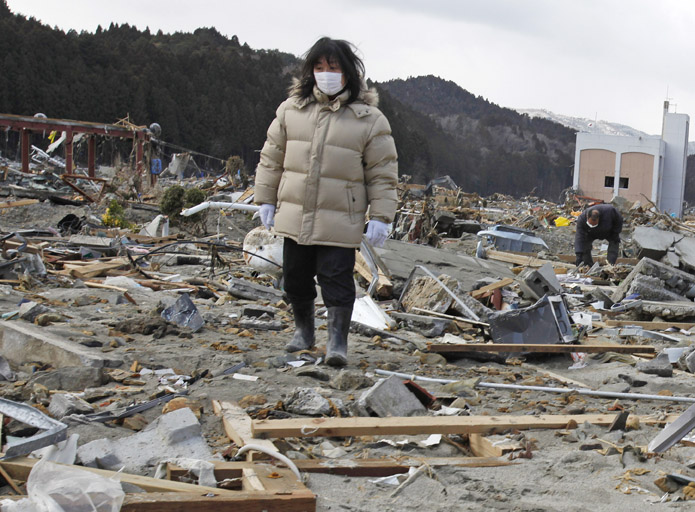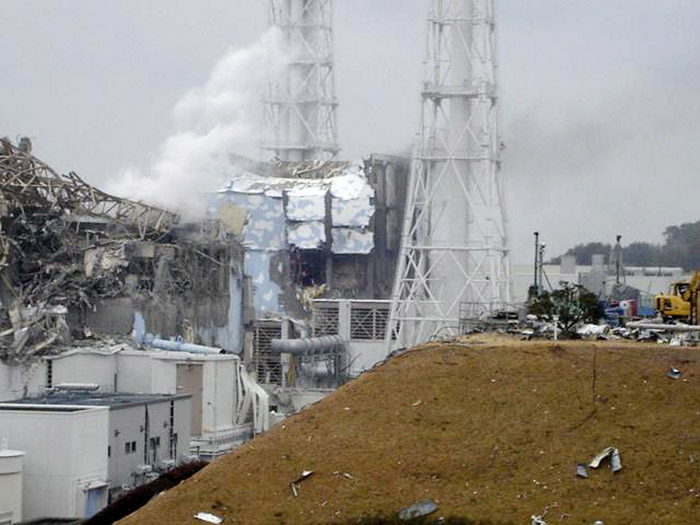Attempts to cool reactors
Military fire trucks spray seawater for a second day on the stricken Fukushima Dai-ichi nuclear complex in a desperate attempt to prevent its fuel from overheating and spewing dangerous radiation. A U.S. military fire truck joins six Japanese vehicles, but is apparently driven by Japanese workers. Japanese air force says some water appears to have reached its target.
Severity level of accident raised
Japan’s nuclear safety agency raises the rating of the nuclear accident from 4 to 5 on a 7-level international scale, making it the same as the U.S. Three Mile Island nuclear accident in 1979. Four of the six reactor units at the Fukushima plant have experienced fires, explosions or partial meltdowns since the March 11 9.0-magnitude quake and tsunami knocked out power to cooling systems.
IAEA calls accident “extremely serious”
The head of the U.N.’s International Atomic Energy Agency says authorities are “racing against the clock” to cool the complex and calls the accident “extremely serious.” He also complains that Japan has not provided adequate information.
New power line not yet complete
The nuclear plant’s operator, Tokyo Electric Power Co., has not finished laying a new power line to the plant in an attempt to restore cooling systems. It remains unclear whether the cooling systems will still function, and officials warned that sparks from electricity could trigger new explosions.
Moment of silence
Tsunami survivors observe a minute of silence at the one-week mark since the quake, which struck at 2:46 p.m. Many lowered their heads and pressed their hands together in prayer. The twin disasters have left thousands dead and missing. Hundreds of thousands are staying in schools and other shelters, as supplies of fuel, medicine and other necessities run short.
PM urges people to unite
Prime Minister Naoto Kan calls the disasters a “great test for the Japanese people” and urges them to unite to “rebuild Japan from scratch.”
Impact on economy
The yen backs away from historic highs and Japanese shares rise after the Group of Seven major industrialized nations promises coordinated intervention in currency markets to support recovery from the disaster. The G-7 pledge comes a day after the yen soared to an all-time high against the dollar, possibly threatening Japanese exports. Japanese automakers, meanwhile, seek alternative parts suppliers to replace those knocked out by the earthquake, which forced most of the country’s car production to a halt.
Send questions/comments to the editors.





Success. Please wait for the page to reload. If the page does not reload within 5 seconds, please refresh the page.
Enter your email and password to access comments.
Hi, to comment on stories you must . This profile is in addition to your subscription and website login.
Already have a commenting profile? .
Invalid username/password.
Please check your email to confirm and complete your registration.
Only subscribers are eligible to post comments. Please subscribe or login first for digital access. Here’s why.
Use the form below to reset your password. When you've submitted your account email, we will send an email with a reset code.